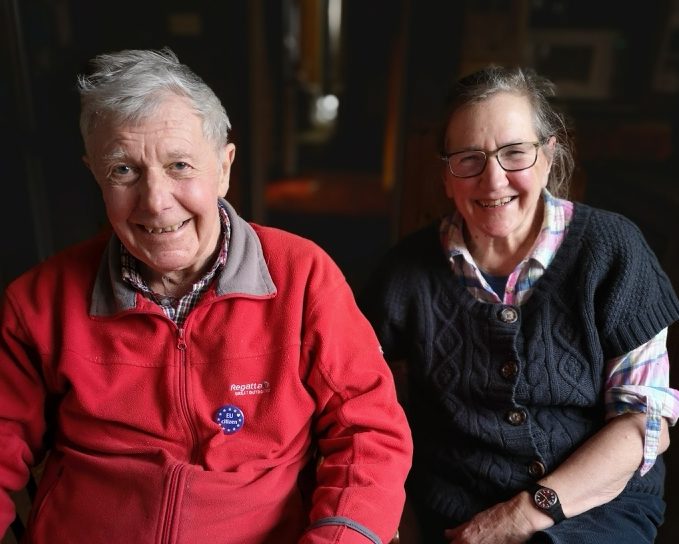Combating climate change with hope and pragmatism
 Robin and Mard could be described as Eco-Warriors. They certainly began the fight to protect our planet long before most of us realised it was a vital cause to be championed. Yet they are both calm, pragmatic people who seem to approach the huge problems facing us all with optimism, hope and a can-do attitude.
Robin and Mard could be described as Eco-Warriors. They certainly began the fight to protect our planet long before most of us realised it was a vital cause to be championed. Yet they are both calm, pragmatic people who seem to approach the huge problems facing us all with optimism, hope and a can-do attitude.
“It was a previous bishop, 20 or so years ago, who told me there was a problem with the environment and that I should go away and learn about it!” said Robin. And he did. He gathered a large collection of, according to Mard, very heavy-weight books and ploughed his way through them. “Of course, the next question he asked was, ‘What are you going to do about it?’”
The Transition movement
They got together with like-minded people, initiating Transition Truro, and set about responding to challenges of the environment, climate change and the damage we’re all inflicting on our planet. “It was a chap called Rob Hopkins who actually started the Transition movement,” says Robin. “He recently asked us to use our imagination and decide what sort of society we’d want in forty years, instead of focusing on the present anger. It was inspiring because it was hopeful.”
“Robin and Mard were there, right at the beginning,” says Luci Isaacson, Director of Climate Vision and environmental officer for the diocese. “They really helped to get those pledges off the ground.”
Hope plays a big part in the ten pledges that underpin the environmental work of the diocese across Cornwall. “Robin and Mard were there, right at the beginning,” says Luci Isaacson, Director of Climate Vision and environmental officer for the diocese. “They really helped to get those pledges off the ground.” The pledges range from buying seasonal produce to pledging to reduce holiday air miles by 50%.
Practicing what you preach
Trying to practice what they preached, Mard says that she came home from choir one day to find all the lights on. “Oh well, I thought, as we’d already switched to green energy I needn’t get too cross!” She also says that whereas in the past they really did drive instead of fly, including when visiting their daughter in Greece, today they sneak in a few ‘love miles’. “She lives in Africa now and driving that far when you’re older isn’t really that fun.”
Mard’s empathy for the challenges of getting older is expressed in her work with the pastoral team at Truro Cathedral. She regularly meets with others to keep a watchful eye on those that could otherwise slip off the radar. The congregation can be very transient and fluid, making it easy to become isolated and disconnected. “But the telephone is a marvellous thing,” says Mard. “As well as home visits, the telephone keeps us connected. For some, a phone call is the only interaction they have all day.”
“The telephone is a marvellous thing… For some, a phone call is the only interaction they have all day.”
Giving climate change, the environment crisis and other global issues a platform
Robin also plays his part in the pastoral life of the Cathedral as a lay assistant on the welcoming team. But the Cathedral also nurtures his passion for the environment, world development and giving good causes a platform. Robin organises exhibitions during One World Week, connecting the local community with the work of Shelterbox, Amnesty International as well as smaller, lesser known initiatives. He fondly remembers Footsteps to Copenhagen when a Cornish piper, horse drawn carriage and cyclists marched through Truro, from the cathedral, carrying the Cornish Declaration on Climate Change.
When asked if there was anything they could pass on from all their years of trying to encourage others to be better stewards of our planet, Robin says, “Listen to the children.” At a time when children are beginning to find their voice and uniting to protest against climate change, this seems like the best of all legacies to pass on.
